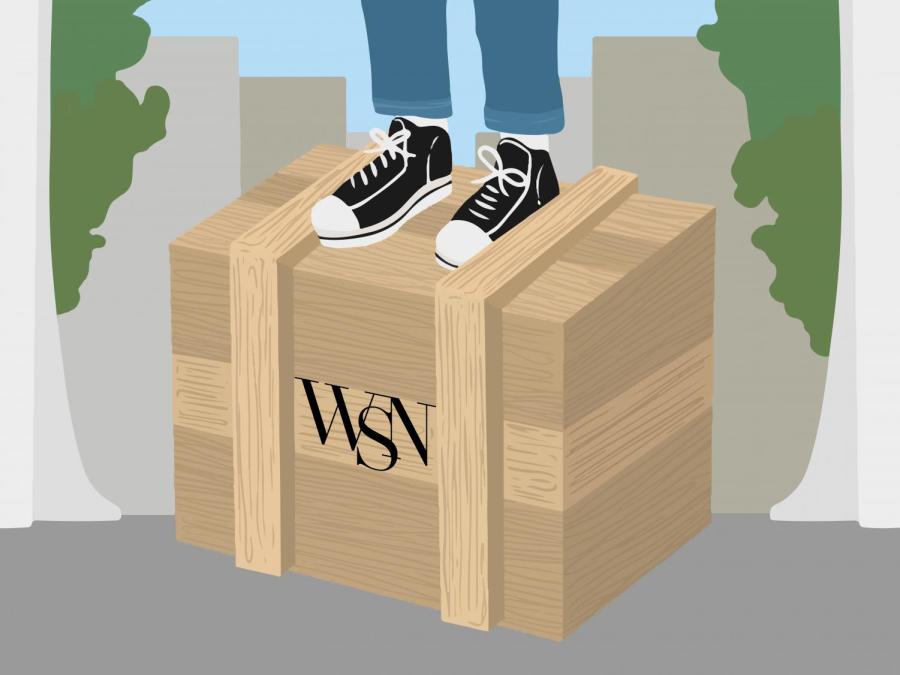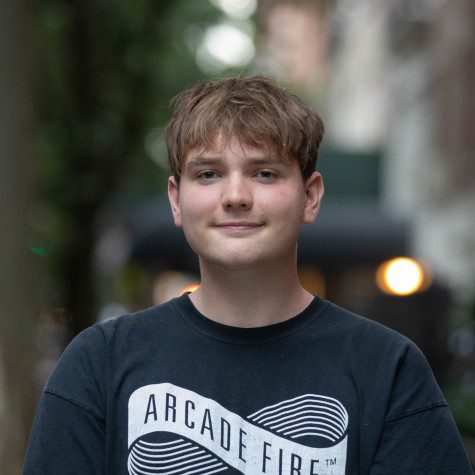The Soapbox: New Delhi, Kashmir, white supremacy
The Soapbox is a weekly column by WSN’s news desk examining the major developments in world news and rounding up the stories we think are worth the read this week. Global consciousness for a global university.
The Soapbox is a weekly news column rounding up stories worth reading for a global university. (Staff Illustration by Susan Behrends Valenzuela)
November 19, 2021
In New Delhi, smog forces schools to close
Authorities in the Indian capital of New Delhi initiated a lockdown of some government facilities, including schools and coal power plants, due to dangerous levels of smog. The city of 20 million people has hazardous air quality, with levels of particulate matter in the air nearing 300 parts per million in the past 48 hours. Smog sources range from the burning of farm stubble to Diwali festival fireworks, which led to several states banning fireworks for this year’s festivities.
Close to half of the 4.4 million children in Delhi likely have irreversible lung damage, according to a 2015 study.
The severity of the situation prompted India’s Supreme Court to order the shutdown of factories, restrict farmers from burning fields, and indefinitely close city schools to reduce traffic and exposure. The national government’s solutions to fight back against the pollution levels seemingly stop there, with the central government and supreme court both blaming each other.
Bhavreen Kandhari, a member of a group of mothers advocating for cleaner air, told The New York Times, said that the lack of progress in fighting pollution stems from a struggle between the federal government and Supreme Court to agree on a plan of action.
“These are hardly measures,” Kandhari said. “These are reactions, knee-jerk reactions. Till you have the political intent, you know nothing is going to happen.”
In Kashmir, rage erupts over the killing of two civilians
Four people, including two civilians, were killed on Monday in Srinagar — the largest city in the Kashmir region — during a police raid against alleged Pakistani militants. Families of the civilians protested on Wednesday night over the raid and the government’s lack of investigation.
The protest consisted of over 20 people and ended in protestors being dragged away. More than a dozen were arrested. Abdul Majid Bhat, the brother of a civilian casualty, held a police rifle up to his chest while shouting: “Shoot me, terrorists.” Demonstrators argued that civilians were used as human shields and purposefully killed. They also said that the government’s secret burial of killed civilians was unjust and inhumane.
Burials are conducted in remote locations in unmarked graves without the families’ knowledge.
Authorities said that the secret burial policy is due to COVID-19 and public safety concerns, even though it began in 2019 after India claimed full autonomy over Kashmir. Burials are conducted in remote locations in unmarked graves without the families’ knowledge.
Kashmiris and families of the victims believe that the police are staging raids and killing innocent people in order to gain pay raises and cement control over Kashmir. Both India and Pakistan claim authority over the region, and the number of violent incidents is increasing with no foreseeable resolution.
In the U.S., three high-profile trials place a spotlight on the fight against white supremacy
All eyes are on three high-profile U.S. trials wrapping up this week: the murder trial of teenager Kyle Rittenhouse, the criminal trial of the three men who hunted down and killed Ahmaud Arbery, and the civil trial of white supremacists who helped organize 2017’s deadly Unite the Right rally in Charlottesville, Virginia.
Five schools near Wisconsin’s Kenosha County courthouse have moved to virtual learning in anticipation of the jury’s decision in the Rittenhouse case, CNN reported. Inside the court, jurors are deciding whether to convict Rittenhouse on five felony charges for shooting three protestors and killing two during racial justice protests in Kenosha, Wisconsin, last year.
Judge Bruce Schroeder — whose rulings and demeanor have raised eyebrows throughout the trial — banned MSNBC from the courtroom on Thursday, accusing a freelancer contracted by the news agency of following jurors outside the courthouse.
In Georgia, attorneys representing the three white men who shot Ahmaud Arbery — a Black man who was out jogging — in February 2020, rested their case on Thursday. Meanwhile, outside the Glynn County courthouse where the trial is being held, more than 100 Black pastors formed a “wall of prayer” in support of the Arbery family, after the accused murderers’ defense attorney attempted to block Black pastors from attending the hearings on Nov. 12.
Closing arguments are underway in the civil trial against the white supremacist and neo-Nazi organizers of the deadly Unite the Right rally in Charlottesville, Virginia, in 2017. The nonprofit Integrity First for America brought a federal lawsuit against more than two dozen individuals and organizations, alleging that the white nationalists conspired to commit racially motivated violence at the rally. The defendants used racial slurs, referenced Hitler’s “Mein Kampf” and promoted their far-right media platforms in their opening statements.
“We desperately want each of these lawsuits — indeed all of these lawsuits — to provide a moment of purifying accountability around the horrors of racism,” legal analyst and Charlottesville resident Dahlia Lithwick wrote about the three cases. “But even if the verdicts go the right way — and they might — we must realize that a system that first barters away the horror, excludes it as evidence, removes its labels, and then sidelines the very jurors who name it is the one we are still forced to argue in. And that might say more than the rulings ever could.”
Contact Kristian Burt at [email protected].

























































































































































